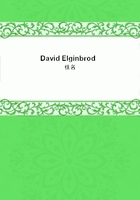
第79章
The rest of the household crept into corners, except the coachman, who, retaining his composure, in virtue of a greater degree of insensibility from his nearer approximation to the inanimate creation, emptied the jug of ale intended for the dinner of the company, and went out to look after his horses.
But there was one in the house who, left alone, threw the window wide open; and, with gently clasped hands and calm countenance, looked up into the heavens; and the clearness of whose eye seemed the prophetic symbol of the clearness that rose all untroubled above the turmoil of the earthly storm. Truly God was in the storm; but there was more of God in the clear heaven beyond; and yet more of Him in the eye that regarded the whole with a still joy, in which was mingled no dismay.
Euphra, Hugh, and Harry were left together, looking out upon the storm. Hugh could not speak in Harry's presence. At length the boy sat down in a dark corner on the floor, concealed from the others by a window-curtain. Hugh thought he had left the room.
"Euphra," he began.
Euphra looked round for Harry, and not seeing him, thought likewise that he had left the room: she glided away without making any answer to Hugh's invocation.
He stood for a few moments in motionless despair; then glancing round the room, and taking in all its desertedness, caught up his hat, and rushed out into the storm. It was the best relief his feelings could have had; for the sullen gloom, alternated with bursts of flame, invasions of horrid uproar, and long wailing blasts of tyrannous wind, gave him his own mood to walk in; met his spirit with its own element; widened, as it were, his microcosm to the expanse of the macrocosm around him. All the walls of separation were thrown down, and he lived, not in his own frame, but in the universal frame of nature. The world was for the time, to the reality of his feeling, what Schleiermacher, in his Monologen, describes it as being to man, an extension of the body in which he dwells. His spirit flashed in the lightning, raved in the thunder, moaned in the wind, and wept in the rain.
But this could not last long, either without or within him.
He came to himself in the woods. How far he had wandered, or whereabout he was, he did not know. The storm had died away, and all that remained was the wind and the rain. The tree-tops swayed wildly in the irregular blasts, and shook new, fitful, distracted, and momentary showers upon him. It was evening, but what hour of the evening he could not tell. He was wet to the skin; but that to a young Scotchman is a matter of little moment.
Although he had no intention of returning home for some time, and meant especially to avoid the dinner-table--for, in the mood he was in, it seemed more than he could endure--he yet felt the weakness to which we are subject as embodied beings, in a common enough form;that, namely, of the necessity of knowing the precise portion of space which at the moment we fill; a conviction of our identity not being sufficient to make us comfortable, without a knowledge of our locality. So, looking all about him, and finding where the wood seemed thinnest, he went in that direction; and soon, by forcing his way through obstacles of all salvage kinds, found himself in the high road, within a quarter of a mile of the country town next to Arnstead, removed from it about three miles. This little town he knew pretty well; and, beginning to feel exhausted, resolved to go to an inn there, dry his clothes, and then walk back in the moonlight; for he felt sure the storm would be quite over in an hour or so. The fatigue he now felt was proof enough in itself, that the inward storm had, for the time, raved itself off; and now--must it be confessed?--he wished very much for something to eat and drink.
He was soon seated by a blazing fire, with a chop and a jug of ale before him.